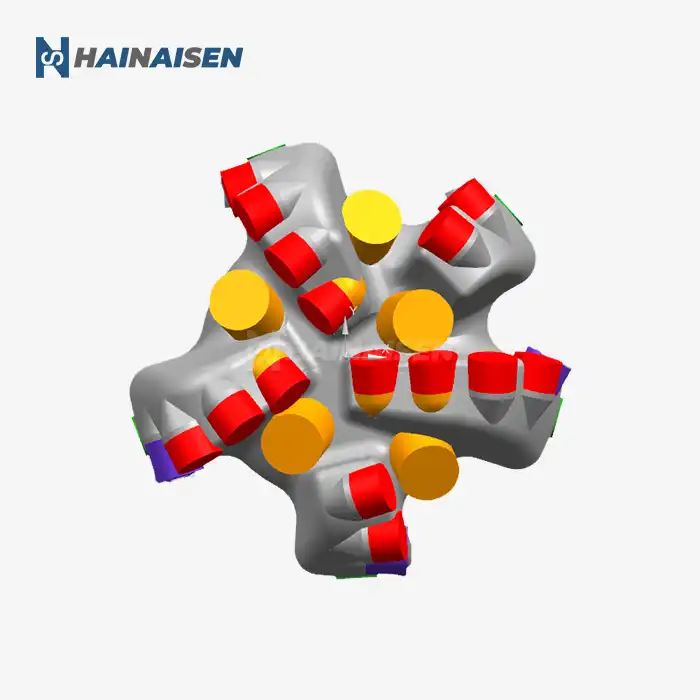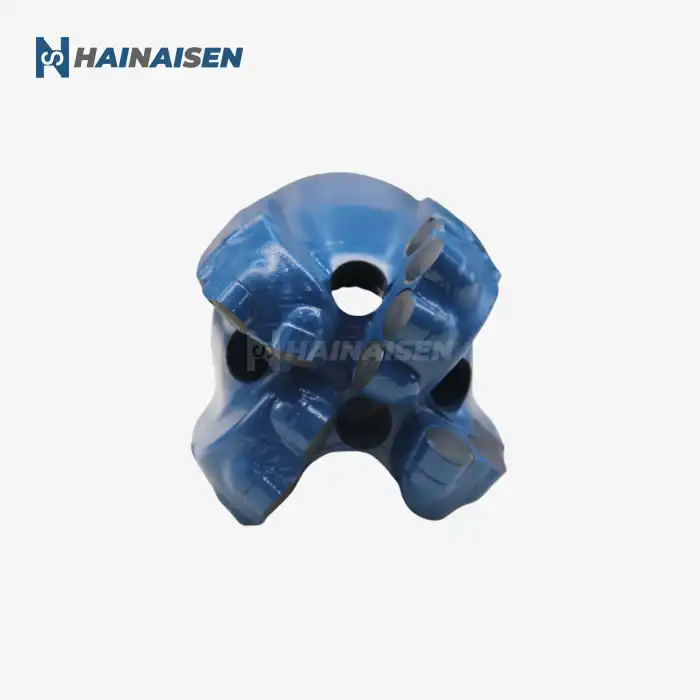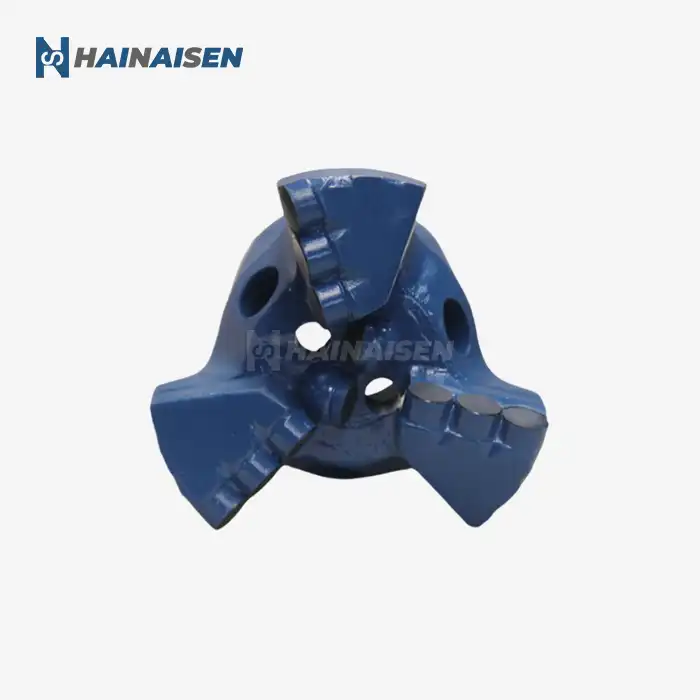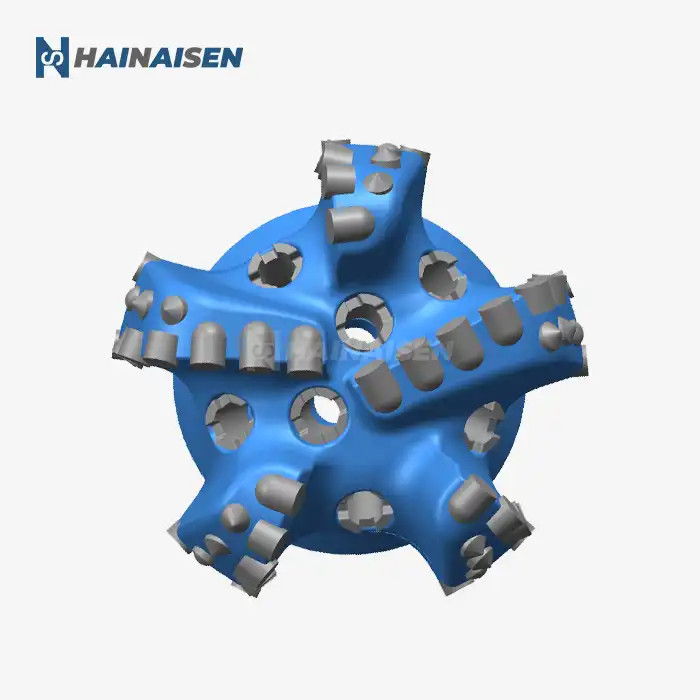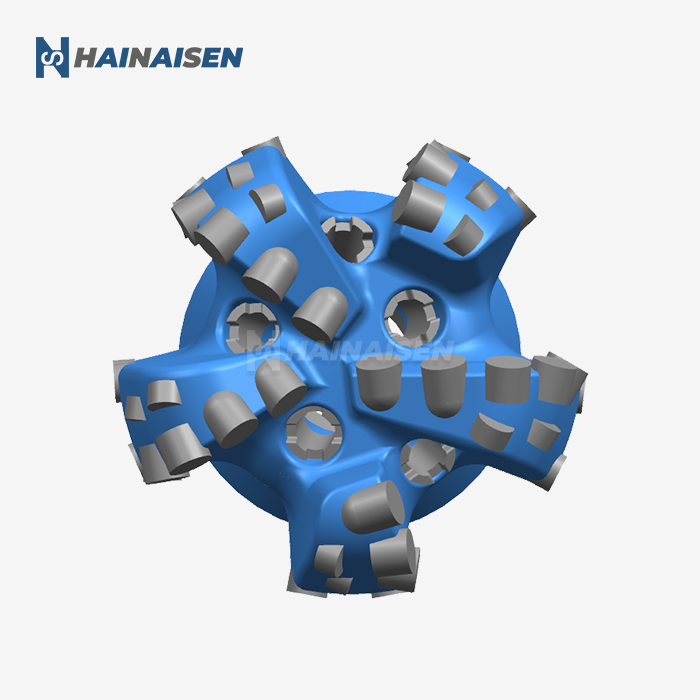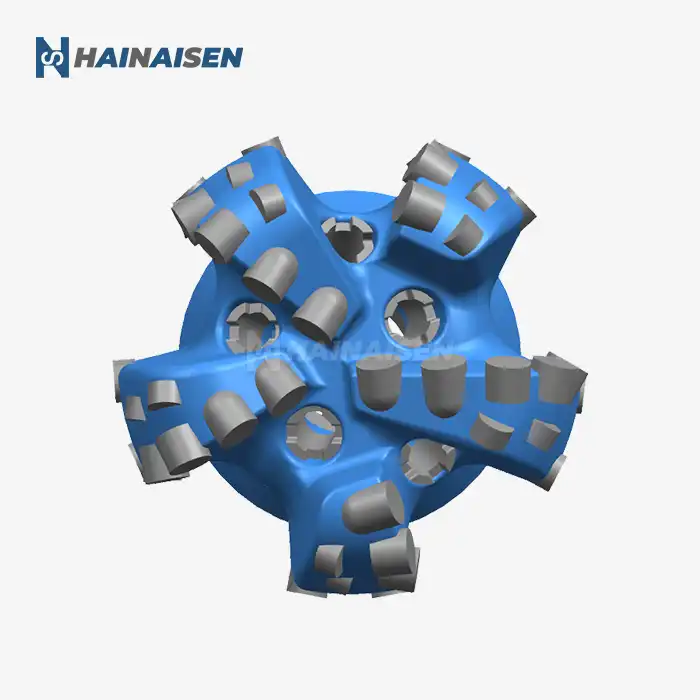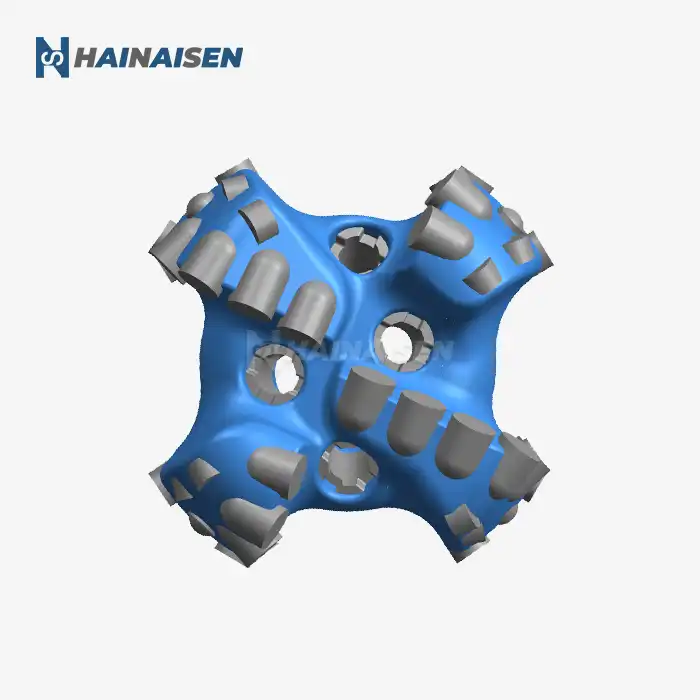Material Properties: Toughness vs Hardness Explained
The crucial distinction between Steel Tooth Bits and TCI bits lies in their fabric properties, particularly sturdiness and hardness. Steel Tooth Bits are created from premium-grade steel amalgams, advertising a adjust of quality and ductility. This composition permits the teeth to withstand affect powers and stand up to misshapening beneath stretch, making them especially compelling in gentler to medium formations.
Steel Tooth Bit Characteristics
Steel Tooth Bits undergo specialized heat treatment processes that enhance their hardness and wear resistance. This treatment creates a tough outer layer while maintaining a ductile core, allowing the teeth to resist chipping and breakage during drilling operations. The ability to absorb shock and vibration makes Steel Tooth Bits ideal for formations with varying hardness levels.
TCI Bit Properties
Tungsten Carbide Embed bits, in differentiate, prioritize hardness over sturdiness. The tungsten carbide embeds are amazingly difficult, giving prevalent resistance to rough wear. This hardness permits TCI bits to keep up their cutting edge longer in difficult, grating arrangements. In any case, the trade-off is a decreased capacity to retain affect, making them more helpless to chipping or breakage in exceedingly variable or shock-prone environments.
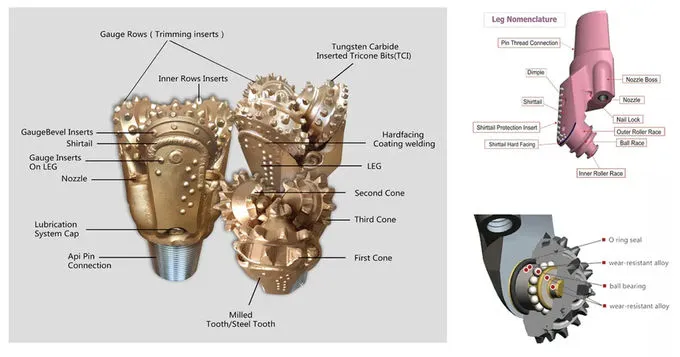
Cutters in Action: When Steel Teeth Outperform TCI and Vice Versa?
The performance of Steel Tooth Bits and TCI bits varies significantly depending on the drilling conditions and formation characteristics. Understanding these differences is crucial for selecting the most effective bit for a given application.
Advantages of Steel Tooth Bits
Steel Tooth Bits excel in softer to medium formations, where their ability to penetrate quickly and efficiently gives them an edge. The milled teeth design allows for aggressive cutting action, promoting faster penetration rates in these conditions. Additionally, the toughness of steel teeth makes them more forgiving in formations with interbedded hard streaks or when encountering unexpected obstructions.
TCI Bit Superiority
TCI bits sparkle in difficult, grating arrangements where their prevalent wear resistance gets to be a noteworthy advantage. The tungsten carbide embeds keep up their cutting edge longer, lessening the require for visit bit changes and progressing generally penetrating proficiency in challenging situations. TCI bits moreover perform uncommonly well in high-temperature conditions, where the warm solidness of tungsten carbide avoids untimely wear.
Application Fit: Formation Types Best Suited for Each Bit Type
Selecting the right bit type for a specific formation is crucial for optimizing drilling performance and cost-effectiveness. Both Steel Tooth Bits and TCI bits have their ideal applications, and understanding these can lead to more successful drilling operations.
Optimal Uses for Steel Tooth Bits
Steel Tooth Bits are particularly well-suited for:
- Soft to medium-soft formations such as shale, clay, and unconsolidated sandstone
- Drilling operations in areas with interbedded formations
- Scenarios where cost-effectiveness is a primary concern
- Applications requiring high penetration rates in softer formations
- Exploratory drilling where formation characteristics may be uncertain
Ideal Applications for TCI Bits
TCI bits are best utilized in:
- Hard, abrasive formations like hard limestone, dolomite, and granite
- Deep drilling operations where bit longevity is crucial
- High-temperature environments
- Formations with consistent hardness levels
- Applications where maintaining gauge diameter is critical
Customization and Versatility
It's worth noting that advancements in bit design and manufacturing have led to increased versatility in both Steel Tooth and TCI bits. Modern Steel Tooth Bits can be customized with specialized coatings or hardfacing to enhance their performance in harder formations. Similarly, TCI bits can be designed with varying insert sizes and configurations to adapt to a wider range of drilling conditions.
Conclusion
The choice between a Steel Tooth Bit and a TCI bit depends on a complex transaction of variables counting arrangement characteristics, penetrating targets, and financial contemplations. By understanding the key contrasts and ideal applications of each bit sort, penetrating experts can make educated choices that lead to made strides effectiveness, decreased costs, and fruitful boring outcomes.
Are you looking for high-quality penetrate bits custom fitted to your particular penetrating needs? Shaanxi Hainaisen Petroleum Innovation Co., Ltd. specializes in the inquire about, improvement, and generation of different bore bits, counting premium Steel Tooth Bits. Our progressed fabricating office and committed R&D group guarantee that we can meet the differing necessities of oil and gas companies, coal mining operations, and water well penetrating groups. Whether you're a huge oil benefit company looking for long-term association or a littler operation looking for cost-effective arrangements, we have the skill to provide. Contact us today at hainaisen@hnsdrillbit.com to discuss how our customizable drill bit configurations can enhance your drilling performance and efficiency.
References
1. Smith, J. R. (2020). "Comparative Analysis of Steel Tooth and Tungsten Carbide Insert Drill Bits in Various Formations." Journal of Petroleum Engineering, 45(3), 278-295.
2. Johnson, A. L., & Thompson, R. D. (2019). "Advancements in Drill Bit Technology: Steel Tooth vs. TCI Performance in Challenging Environments." Drilling Technology Innovations, 8(2), 112-129.
3. Garcia, M. E. (2021). "Economic Considerations in Drill Bit Selection: A Case Study of Steel Tooth and TCI Bits in Medium-Hard Formations." Oil and Gas Economics Review, 33(4), 401-418.
4. Wilson, K. P., & Davis, L. T. (2018). "Material Properties and Wear Resistance of Modern Drill Bit Cutters." Materials Science in Drilling Operations, 12(1), 67-84.
5. Lee, S. H., & Brown, C. R. (2022). "Optimization of Drill Bit Selection for Varied Formation Types in Offshore Drilling." Offshore Technology Conference Proceedings, 56, 1289-1305.
6. Anderson, E. M. (2021). "The Impact of Drill Bit Design on Rate of Penetration: A Comparative Study of Steel Tooth and TCI Bits." Drilling Engineering Quarterly, 29(3), 215-232.



